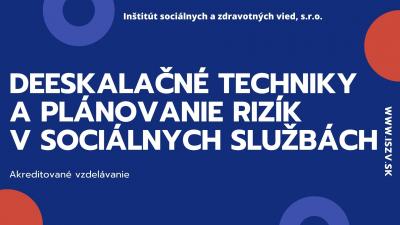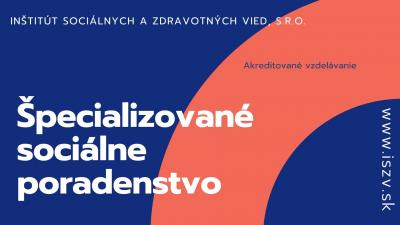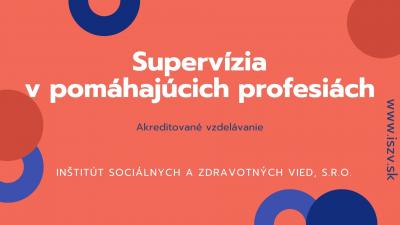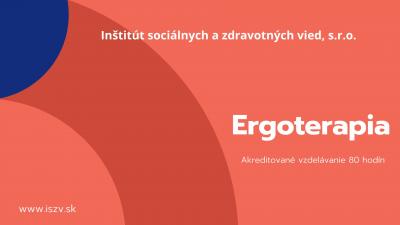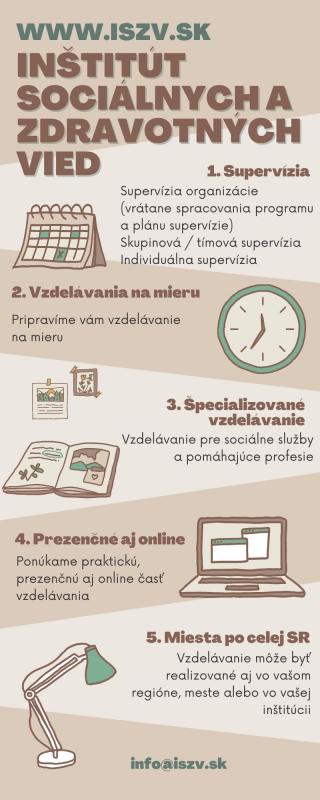 This publication offers a reader with comprehensive analysis of professional literature sources on zero-grade theme and analysis of ideas and approaches to the education of Roma pupils from socially disadvantaged environment. It also provides opinions and views of staff, parents and experts, on the importance and effectiveness of zero grade within elementary schools in regards to the education of Roma pupils. This publication was elaborated within the implementation of the project Roma Education Fund (REF) – Project Code: SLO 042 School for Everybody, in order to examine the effectiveness of zero grade.
This publication offers a reader with comprehensive analysis of professional literature sources on zero-grade theme and analysis of ideas and approaches to the education of Roma pupils from socially disadvantaged environment. It also provides opinions and views of staff, parents and experts, on the importance and effectiveness of zero grade within elementary schools in regards to the education of Roma pupils. This publication was elaborated within the implementation of the project Roma Education Fund (REF) – Project Code: SLO 042 School for Everybody, in order to examine the effectiveness of zero grade.
INTRODUCTION
In contemporary society characterized by globalization processes and accompanied by a number of negative effects, it seems extremely important to seek and find the key strategies and approaches to mitigate their impact. In this context, the importance of education, both in relation to entire population, thus for so called new target groups, is crucial. In the last two decades of responding to the challenge in Slovakia - raising the educational level of the Roma ethnic group - a large number of experienced and committed professionals at the level of theory, research, and at the decisive power and various other helping professions have contributed.
Experts dealing with Roma issues agree in opinion, that one of the basic problems of the Roma ethnic group and the common 'root cause' of many difficulties in their lives and in society as a whole, is their low level of education (and we agree with them). This fact also suggests that the key role in progressively improving the living standards of the Roma ethnic group will increase their level of education. Education also represents a higher recognition and respect of others within the human society. The objective of our publication is not about exploring the causes of a current state, nor finding the culprit. We provide readers with theoretical and empirical analysis of specific educational (compensation) tool – zero grade in elementary school, which in terms of the Slovak legislation, has been institutionalized for ten years already. Its main objective would be preparing of pupils who didn’t reach sufficient school readiness and come from socially disadvantaged environment, for a successful education in elementary school. We offer a reader with comprehensive analysis of professional literature sources on zero-grade theme and analysis of ideas and approaches to the education of Roma pupils from socially disadvantaged environment. We also provide opinions and views of staff, parents and experts, on the importance and effectiveness of zero grade within elementary schools in regards to the education of Roma pupils. This publication was elaborated within the implementation of the project Roma Education Fund (REF) – Project Code: SLO 042 School for Everybody, in order to examine the effectiveness of zero grade.
At this point, we would like to sincerely thank all of our respondents - school staff, parents and experts, whose cooperation was crucial in the process of creating this publication.
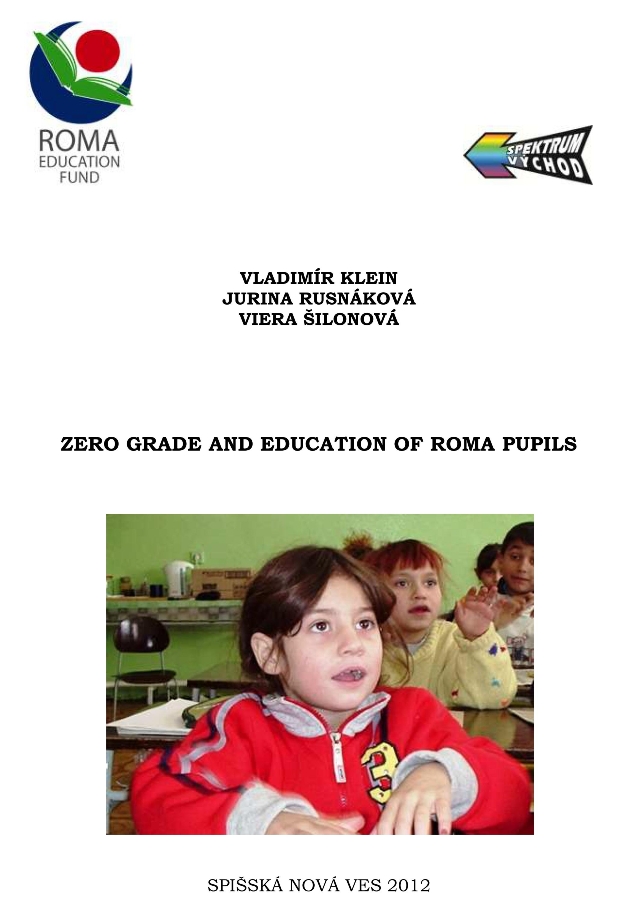
CONTENT
1 THEORETICAL FRAMEWORK
1.1 Characteristics of the basic concepts
1.1.1 Acceleration Programme
1.1.2 Inclusive education
1.2 Overview of legislative standards in Slovakia
1.2.1 Pedagogical and organizational guidelines of The Ministry of Education (MŠVVaŠ SR) for the school years 2011/2012 and 2012/2013
1.3 Analysis of selected concepts and views on the system of education of Roma pupils in Slovakia
1.3.1 Medium-term development concept of the Roma minority in the Slovak Republic
1.3.2 Decade of Roma Inclusion for the years 2005-2015 and the REF (Government Resolution No. 28/2005)
1.3.3 Amnesty International, UNDP and education of Roma children in Slovakia
1.3.4 Legislative intent of the Act on Socially Excluded Communities
1.3.5 The National Roma Integration Strategy up to 2020
1.4 Negative tendencies in the Slovak Republic’s school system
1.5 Level of care for pupils from socially disadvantageous environment in elementary schools in Slovakia
2 SOCIALLY DISADVANTAGEOUS ENVIRONMENT
2.1 Socially disadvantageous environment – approaches abroad
2.2 Socially disadvantageous environment – approaches in Slovakia
2.2.1 Socially disadvantageous environment – definition
3 ZERO (PREPARATORY) GRADE IN THE SLOVAK AND CZECH REPUBLIC
3.1 Preparatory grade in the Czech Republic
3.2 Zero grade in the Slovak Republic
3.3 Zero grade – analysis of approaches and researches (surveys) in Slovakia, as well as in foreign countries, with regards to education of socially disadvantaged children and pupils
3.3.1 Analysis of researches (surveys) focused on zero (preparatory) grades in foreign countries
3.3.2 Analysis of researches (surveys) focused on zero (preparatory) grades in Slovakia
4 RESEARCH ON EFECTIVENESS OF ZERO GRADES
4.1 Research problems, research objectives and questions
4.2 Methods
4.3 Characteristics of the research file
4.3.1 Characteristics of towns and municipalities
4.3.2 Characteristics of schools
4.3.3 Characteristics of participants
5 BASIC QUANTITATIVE AND QUALITATIVE FINDINGS
5.1 Pupils from socially disadvantaged environment or Roma pupils?
5.2 Education of Roma pupils (motivation and barriers)
5.2.1 Programmes for Roma pupils and for pupils from socially disadvantaged environment
5.3 Zero grade in Slovakia and in the Spišská Nová Ves district
(experimental verification)
5.3.1 School readiness of children from socially disadvantaged environment - diagnostics and re-diagnostics
5.4 Zero grade in monitored schools
5.5 Pupils in zero grade
5.5.1 Attendance of pupils in zero grades
5.5.2 Cooperation with parents
5.6 Pedagogical staff in zero grades
5.6.1 Teacher’s assistant in zero grade
6 BENEFITS OF ZERO GRADE
6.1 Advantages and disadvantages of zero grade
6.2 Benefits by teachers and directors
6.3 Benefits by to parents
6.4 Success of zero-grade graduates
6.4.1 Zero-grade graduates in selected schools across the Spišská Nová Ves district
6.4.2 Zero-grade graduates in monitored schools
6.4.3 Life stories of graduates
7 DISCRIMINATION IN ZERO GRADES – OPINIONS OF
PARTICIPANTS
7.1 Basic scope – discrimination and segregation in education
7.2 Opinions of teachers and directors
7.3 Opinions of parents
7.4 Opinions of experts and representatives of schools with a long tradition of zero grades
8 CONCLUSIONS AND RECOMENDATIONS FOR TEACHING
PRACTICE
8.1 Brief summary on conclusions
8.2 Proposals for increasing the efficiency of education of Roma pupils and changes in the organization of zero grades as proposed
by participants
8.3 Proposals for alternative forms of education
8.4 Proposals for changes in conditions of zero-grade education,
leading to potential discrimination and segregation, as stated by
the experts
8.5 Our proposals
____________________________
Title: Zero Grade and Education of Roma Pupils
Editor: Civil Association SPECTRUM-EAST
Authors:
doc. PaedDr. Vladimír Klein, PhD.
Mgr. Jurina Rusnáková, PhD.
PhDr. Viera Šilonová
Reviewers:
doc. PaedDr. Ladislav Horňák, PhD.
doc. PhDr. Rastislav Rosinský, PhD.
Year of publication: 2012
Edition: first
Extent: 265 pages
ISBN 978-80-971181-1-2
EAN 9788097118112
| Príloha | Veľkosť |
|---|---|
| Zero_Grade_and_Education_of_Roma_Pupils.pdf | 2.05 MB |
